
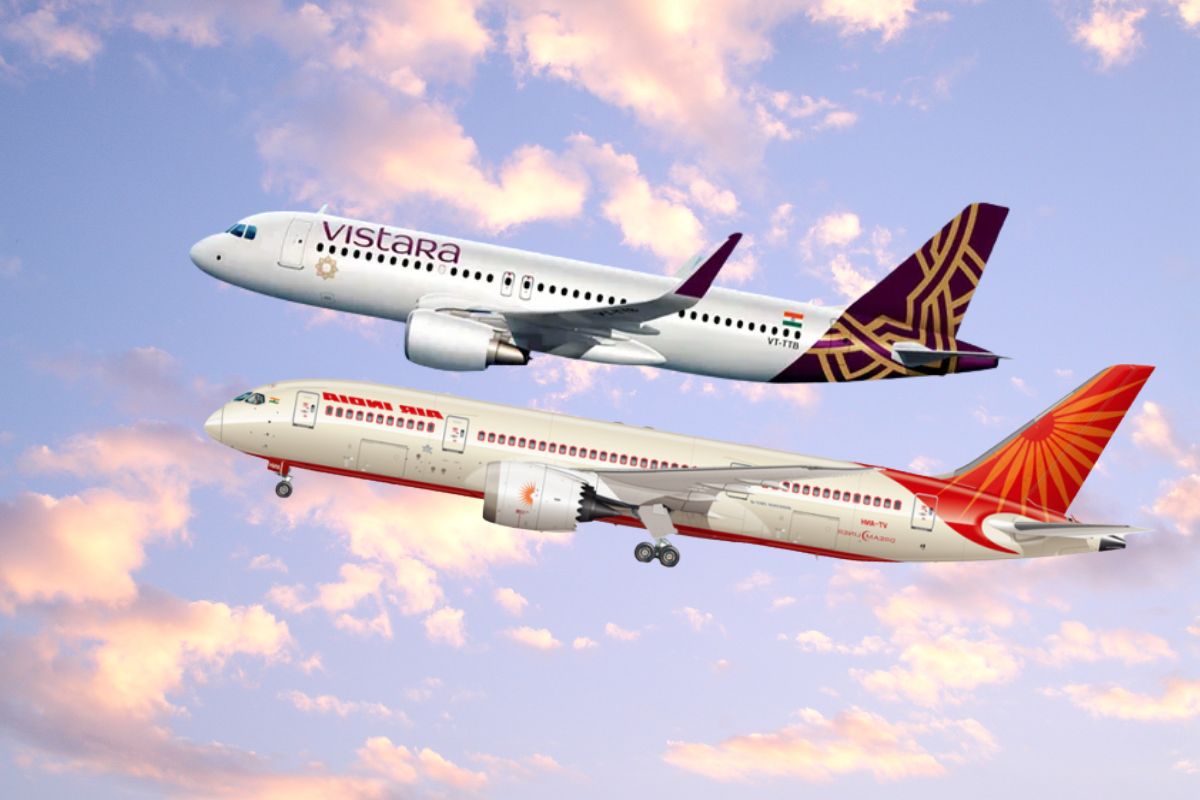
The Indian aviation industry has witnessed major developments recently, with the Tata Group taking control of the market. The merger of Vistara into Air India has changed the dynamics of the sector and has also raised questions about the carrier's ability to match the standards set by Vistara. On the other hand, IndiGo is making moves to tap into the luxury market by introducing business class cabins on select routes. However, experts believe IndiGo may not be able to compete with full-fledged business class airlines. This will be a crucial test for the Tata Group as they work towards turning Air India into a profitable venture.
The Indian aviation industry has undergone significant transformations in recent times, with the Tata Group emerging as a dominant player. One of the most notable developments is the merger of Vistara into Air India, which has reshaped the sector's landscape.
Background:
Vistara, a joint venture between Tata Group and Singapore Airlines, was launched in 2015 and quickly established itself as a leading full-service carrier in India. Known for its premium services and customer satisfaction, Vistara has consistently ranked among the top airlines in the country.
In January 2023, Tata Group, which also owns Air India, announced the merger of Vistara into the national carrier. The move was part of the group's plan to consolidate its aviation businesses and create a more robust and competitive entity.
Implications:
The merger of Vistara into Air India has several implications for the Indian aviation industry:
Questions and Answers:
1. Will Vistara's high standards be maintained after the merger?
Tata Group has assured that efforts will be made to retain Vistara's premium services and customer-centric approach within Air India's operations.
2. Can IndiGo compete with full-fledged business class airlines?
Analysts believe that IndiGo's entry into the business class market is a strategic move, but it may face challenges in directly competing with established business class airlines like Vistara and Air India.
3. What are the benefits of the merger for Tata Group?
The merger strengthens Tata Group's position in the aviation industry, allows for operational synergies, and provides a potential platform for Air India to become a more competitive and profitable entity.
4. How will the merger impact Air India employees?
Tata Group has announced that job loss is not an immediate concern, and both Air India and Vistara employees will be evaluated based on their merit and performance.
5. What are the long-term implications of the merger for the industry?
The merger creates a dominant player in the Indian aviation market, which could influence pricing, service levels, and competitive dynamics among airlines in the future.

Yoga guru Baba Ramdev has stirred up controversy by coining the term "Sharbat Jihad" while promoting Patanjali's latest rose-flavoured sharbat. He claims that a rival brand uses the profits from its sale to fund the construction of mosques and madrasas, urging consumers to opt for Patanjali's products to support the development of gurukuls and Acharya Kulam. In response, Hamdard, the maker of RoohAfza, emphasized its commitment to maintaining high-quality standards and ensuring product purity.
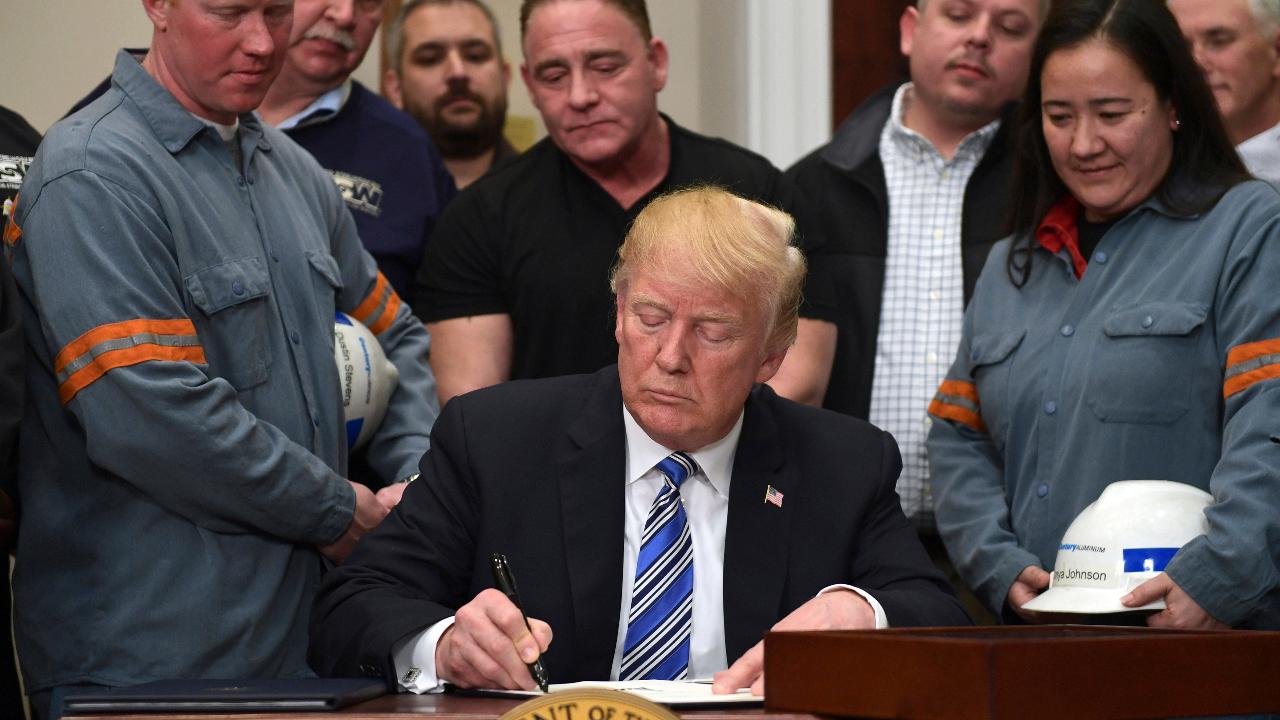
Fox News anchor Maria Bartiromo discusses the potential impact of President Trump's proposed tariffs on American consumers. While she acknowledges that the tariffs will likely increase prices for some products, she also suggests that the current economic concerns may be an "overreaction" and that there are positive signs for the economy. Bartiromo also highlights the potential for a single trade deal to change public opinion and the idea that America is currently in a "disruption" phase.
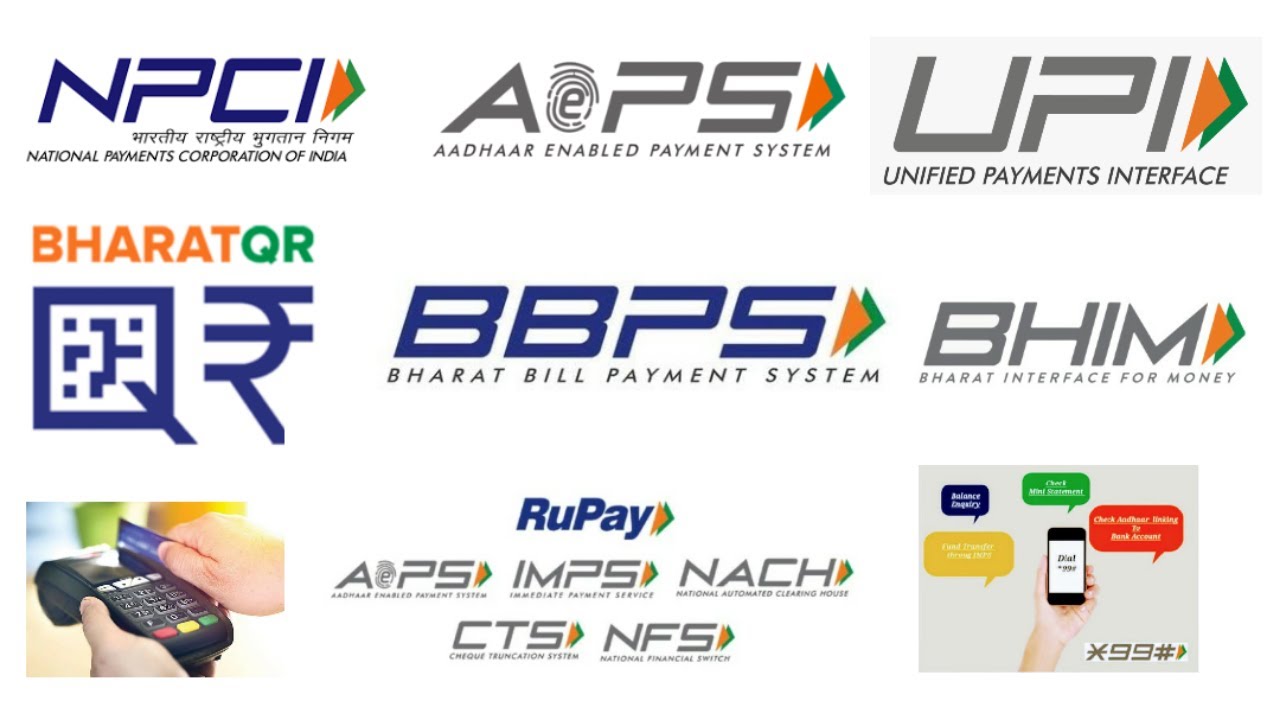
The National Payment Corporation of India (NPCI) has announced a new directive for international UPI payments, effective April 30. The new policy prohibits the use of QR share and pay for international transactions, specifically targeting Person to Merchant (P2M) transactions. This decision comes in response to the increasing number of scams and fraudulent activities orchestrated by individuals in other countries and aims to protect consumers from exploitation. While this policy only applies to international transactions, domestic transactions using QR codes for sharing and payments have a limit of Rs 2,000 for non-verified offline merchants.

FOX News Network is offering exclusive deals and discounts for military members, veterans, and first responders. This comes as part of their commitment to support those who have served and protected our country. Customers can contact the FOX help center or visit their website to learn more about their rights and privacy practices. With this offer, FOX News Network continues to show their appreciation for the sacrifices and service of our military and first responders.
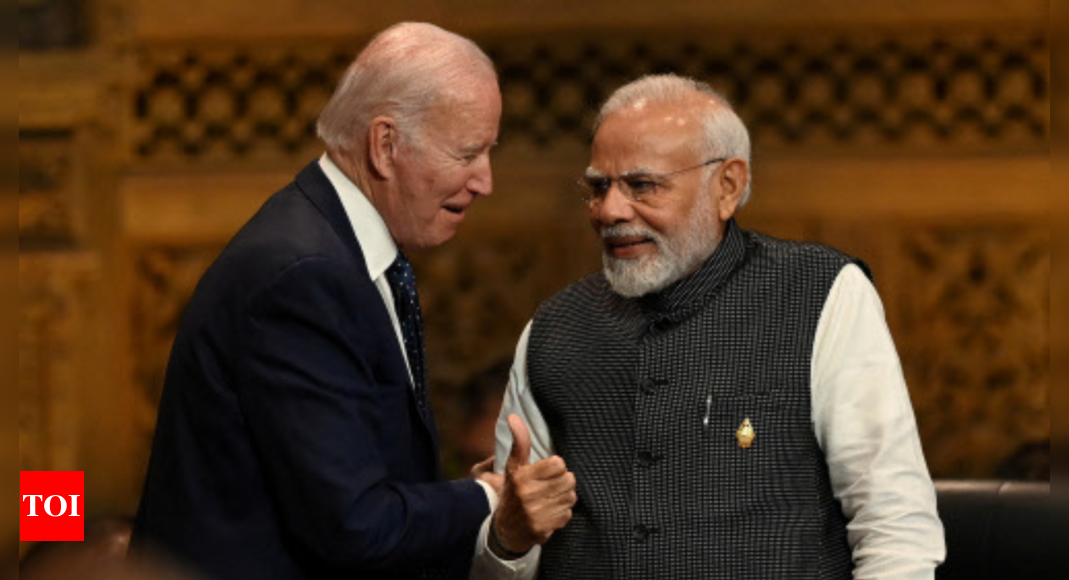
India and the US have finalized the terms of reference for talks over a bilateral trade deal, with hopes for a "win-win shape and form" in the next 90 days. As two of the largest trading partners, this deal could have significant impacts on the economies of both countries. The talks will continue virtually and regularly, with India believing it is ahead in negotiations compared to other countries.

After negotiations and securing a ground lease at its current site, Little Creatures Brewery will not have to relocate to a nearby property. This comes as a welcome relief for fans of the Fremantle brewery, which has been in its original location for 22 years. With further plans for redevelopment and growth, Little Creatures will continue to hold its own in the competitive world of breweries in the city. As other businesses and developments continue to emerge in the area, the iconic Little Creatures remains a key destination for locals and visitors alike.

For over 30 years, Australasian Transport News (ATN) has been the go-to source for transport business owners and managers. Now, with the launch of their digital platform Fully Loaded, ATN is revolutionizing the way businesses in the transport industry manage their operations. With its comprehensive intelligence and unrivaled expertise, Fully Loaded is set to transform the landscape for medium to large transport companies.

KRAFTON India has taken the gaming world by storm with their recent event, 'India’s Biggest In-Game Wedding' on Battlegrounds Mobile India. The company has successfully transformed the digital battlegrounds into the perfect venue for a grand shaadi celebration, gaining widespread attention and admiration. Not only does this event serve as a unique and creative way to connect with their audience, but it also showcases KRAFTON's commitment to providing top-notch gaming experiences and creating unforgettable moments for players.
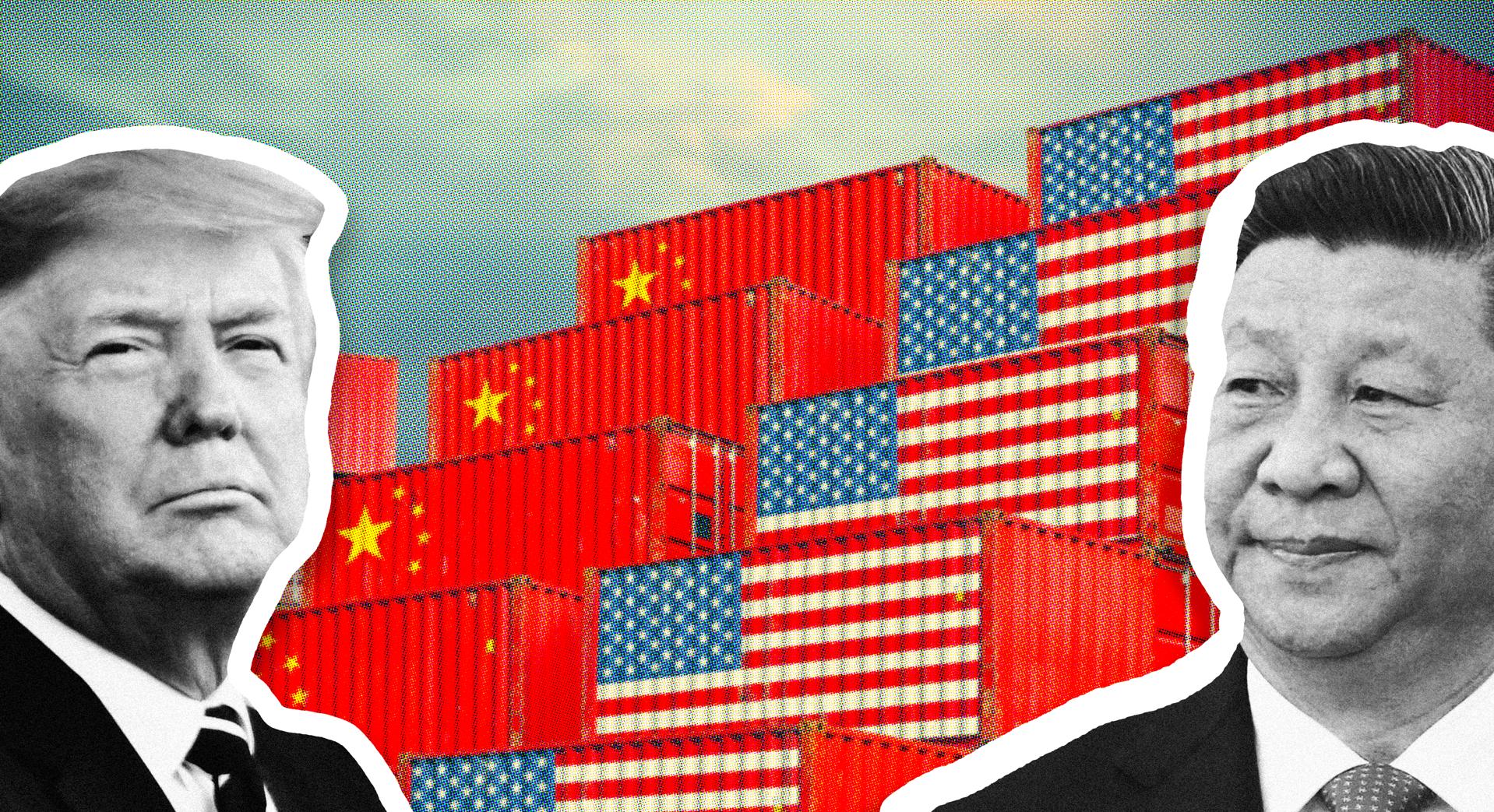
The United States and China are locked in a high-stakes trade war, with tensions reaching a new peak on Thursday. Trump has raised tariffs to 125 percent on Chinese imports, while China’s tariffs on US imports went into effect. Both sides show no signs of backing down, raising concerns about a global recession and the potential economic fallout.

Director Sanoj Mishra was arrested in New Delhi on rape charges after an aspiring actress from a small town accused him of exploiting her with false promises of stardom. The accused had previously made headlines for offering a role to Maha Kumbh sensation Monalisa. In a viral video, Monalisa is seen crying inconsolably after the director's arrest. The victim also alleged that Mishra threatened to take his own life if she did not meet him.